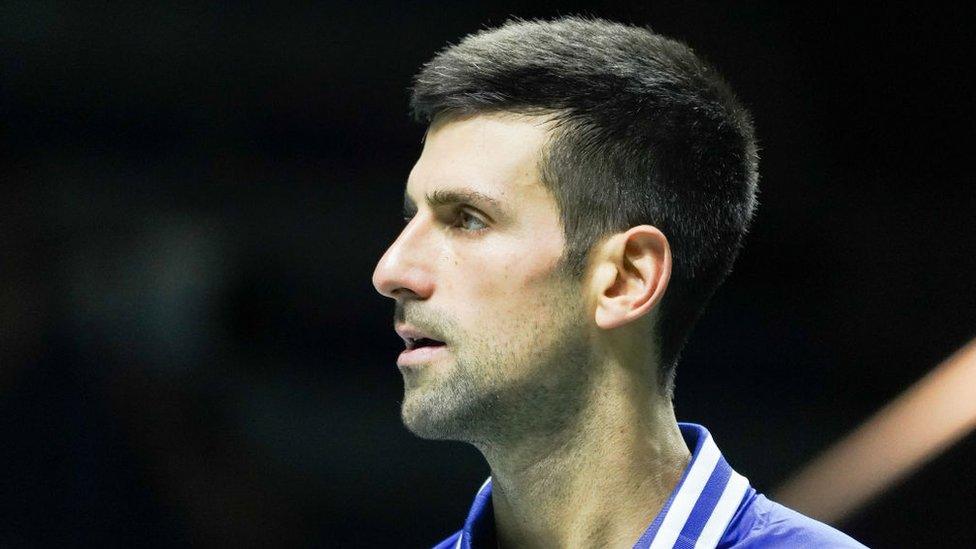Novak Djokovic visa: Australia says tennis star not being held captive
- Published
Watch: The BBC's Shaimaa Khalil reports from outside hotel where Djokovic is being detained
Novak Djokovic is not being held captive in Australia, a top official says, as the men's world number one tennis player faces deportation over Covid vaccination rules.
The Serb star remains in immigration detention in Melbourne after being denied entry on Wednesday.
In a message on Instagram on Friday, he thanked "people around the world" for their support, external.
A court challenge is due on Monday, a week before the Australian Open begins.
Czech player Renata Voracova has also had her Australian visa cancelled, local media reported on Friday.
Now more uncertainty surrounds the schedule of the tournament that Djokovic has won nine times. A 10th win would see him become the men's most successful player, with 21 Grand Slams.
Djokovic, who has said he is opposed to vaccination, had been granted a medical exemption to play in the tournament for unspecified reasons, in a decision that infuriated many Australians. More than 90% of the country's adult population are fully vaccinated, but they still face restrictions as cases of infection rise.
Djokovic's exemption was given by two independent medical panels organised by Tennis Australia, the body that runs the event, and Victoria state.
But on Wednesday, Australian Border Force (ABF) officials said the 34-year-old player had "failed to provide appropriate evidence" at Melbourne Airport.
The federal government has criticised Tennis Australia for ignoring ABF advice about the requirements for entry. On Friday, Victoria said Tennis Australia had also failed to pass on this advice.
Prime Minister Scott Morrison is also being accused of politicising the issue. The prime minister himself is under pressure amid the surge of Covid-19 infections in the country, and a federal election is likely to be held in May. Mr Morrison has denied the visa cancellation was because of "any particular position in relation to Serbia".
But Serbian President Aleksandar Vucic has said Djokovic is a victim of "harassment". As Serbs celebrated Orthodox Christmas on Friday, Serbia's Patriarch Porfirije sent a message of support to Djokovic, saying that millions of Orthodox Serbs were praying for him.
It is not yet clear how long Djokovic will remain in the immigration detention hotel that has often been criticised by refugees for its poor conditions. Serbia has demanded Australia move him to a nicer hotel.
In his Instagram message, Djokovic said he could "feel" the support of fans, which "is greatly appreciated".
In an interview with Channel 9 on Friday, Home Affairs Minister Karen Andrews said Djokovic "is free to leave at anytime that he chooses to do so and Border Force will actually facilitate that".
Ms Andrews said there was intelligence to "indicate there are some individuals here now that have not met the entry requirements and we have to investigate that".
However, she did not say how many other players were under investigation or who they were.

Anger and embarrassment grows

Tensions and emotions have been high outside the hotel where Novak Djokovic is being kept. His supporters were there well after midnight.
Some wrote "stay strong" in big yellow letters on the pavement. Others lit candles.
"It's [the Orthodox] Christmas," a woman told me, visibly emotional. "He'll be alone up there. It's a farce."
There are many strands to this story. The anger. The politics. The visa. And of course, the tennis - which is what the world number one is here for.
Djokovic fans are furious that he's been allowed to come all the way to Australia only to be told he had to leave on a visa technicality.
But other Australians are outraged that a world-class athlete who's been vocal about his vaccine opposition was granted an exemption, while their own politicians have urged them for nearly a year now to get both jabs and now the booster.
Both shades of anger are understandable and they have at least one thing in common: fury about how the authorities have handled this.
There has been a continuous tussle - and lots of blame-shifting - between the state and federal governments and Tennis Australia.
Politicians have wanted to prove that they can control who comes in and out of the country but in doing so they have lost control of the narrative.
It's an embarrassing situation for Australia whichever way you look at it.

Djokovic's wife, Jelena, thanked people "all around the world for using your voice to send love to my husband".
The player's father, Srdjan, said his son had been held in a room guarded by police at the airport, adding that it was "not just a fight for Novak, but a fight for the whole world".
Djokovic drew qualified backing from Australian player Nick Kyrgios, who tweeted his support for vaccinations but said "how we are handling Novak's situation is bad, really bad".
But others such as Spanish tennis star Rafael Nadal, currently in Melbourne to prepare for the tournament, said it was "normal" for Australians to get "very frustrated with the case".
"The only, for me, clear thing is if you are vaccinated, you can play in the Australian Open," he said, adding: "Of course after a lot of people had been dying for two years, my feeling is [that] the vaccine is the only way to stop this pandemic."
The Australian Open begins on 17 January.
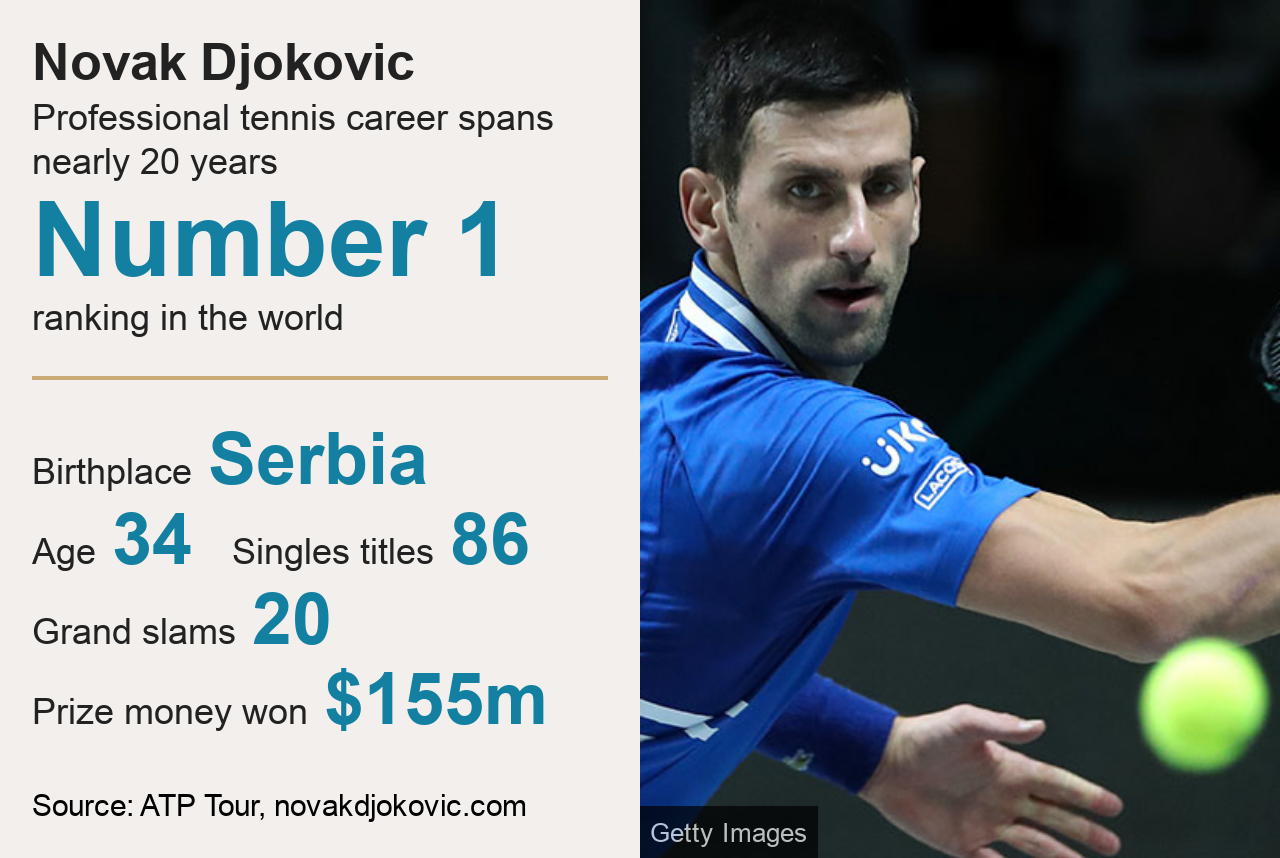

Related topics
- Published8 January 2022
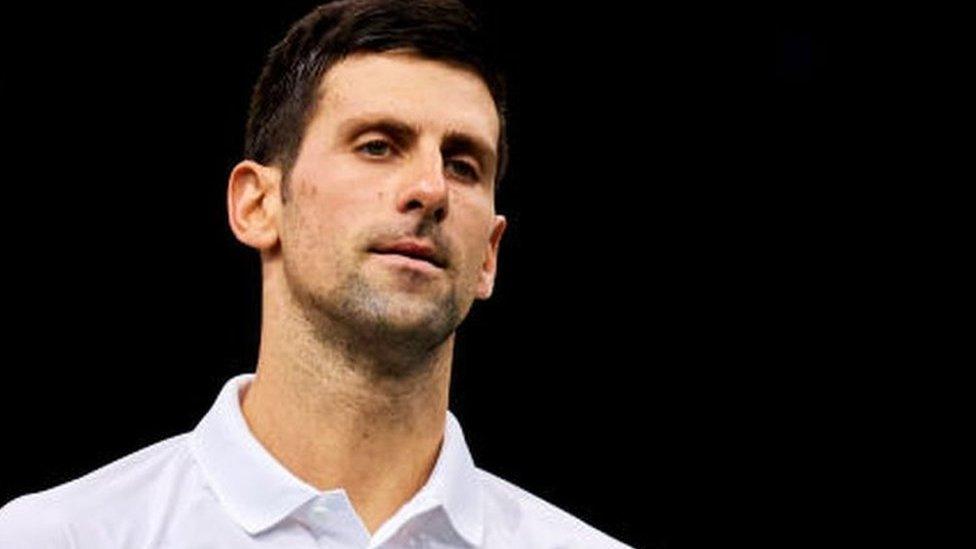
- Published6 January 2022
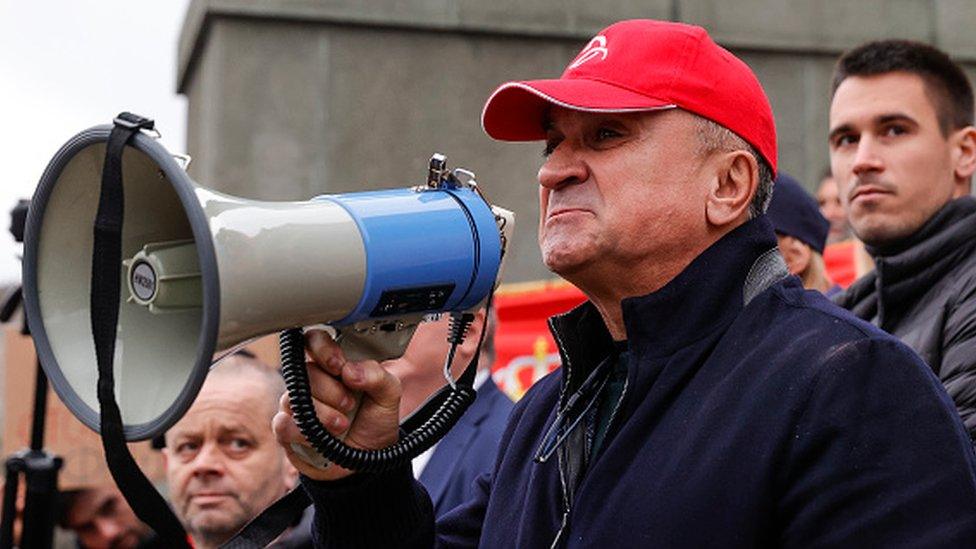
- Published4 January 2022
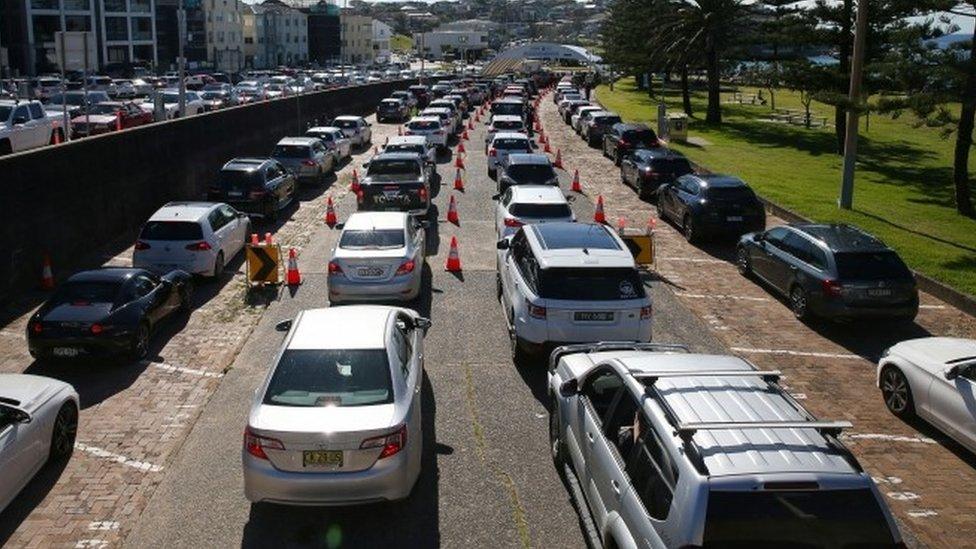
- Published6 January 2022
